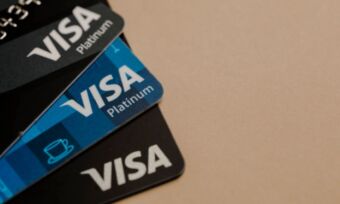What is a credit card minimum repayment?
The minimum repayment on a credit card is the lowest amount you have to pay to meet your credit card agreement. If you don’t pay this amount by the due date, you will typically be charged a late fee.
The minimum repayment amount will differ depending on your credit card provider and your outstanding balance. However, financial institutions typically set the minimum repayment amount at $10 to $25 or 2% of the amount owing, whichever is higher.
What happens if you only make the minimum repayment on your credit card?
By paying the minimum repayment amount of your credit card, you will avoid a late payment fee; however, you will still be charged interest on your outstanding balance. If you only ever make the minimum repayments, you may find that it takes you a long time to repay your credit card debt, as you will continue to be charged interest.
If you are able to pay off your outstanding debt by the due date, you can avoid late payment fees and interest charges. That’s because most credit cards have interest-free periods up to 62 days, depending on the card.
If I make minimum repayments, how much will my credit card debt cost?
In the example below, we’ve calculated the total potential cost if you only make the minimum repayment on your credit card each month. We’ve also calculated how long it could take you to pay off your credit card debt.
These calculations are based on a purchase rate of 17.07% and minimum repayments of $10 or 2% of the amount owing (whichever is greater).As you may see below, making only minimum repayments can end up being costly.
Credit card debt costs using minimum repayments
| Amount owed | Time to pay off debt | Total repaid |
|---|---|---|
| $2,000 | 28 years and 4 months | $6,385.45 |
| $5,000 | 42 years and 1 months | $17,333.17 |
| $7,000 | 47 years and 1 months | $24,631.68 |
| $10,000 | 52 years and 5 months | $35,579.41 |
| $15,000 | 58 years and 6 months | $53,825.61 |
Source: www.canstar.com.au – 12/08/2025. Based on personal unsecured credit cards on Canstar’s database with minimum repayment of $10 or 2% (whichever is greater)
As you can see, simply making the minimum repayments can be costly in the long run and it can take you a significant amount of time to pay off your debt. If you can, it’s best to repay as much of your balance as quickly as possible, as this may reduce the amount of interest you are charged and the overall cost of your credit card.
If you are unable to pay off your balance in full each month, consider comparing credit cards to find one with a lower interest rate and low fees. It’s a good idea to always read the Product Disclosure Statement (PDS) and Target Market Determination (TMD) if you are considering a credit card.
You could also take a closer look at your budget and see if there are any areas you may be able to cut back on and use these savings to pay off your credit card balance. If you are finding it difficult to meet your repayments, contact your credit card provider and see if you can reach a financial hardship arrangement. You can also speak to a financial counsellor for free by calling the National Debt Helpline on 1800 007 007.








